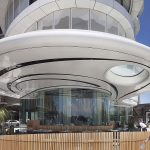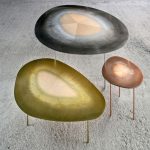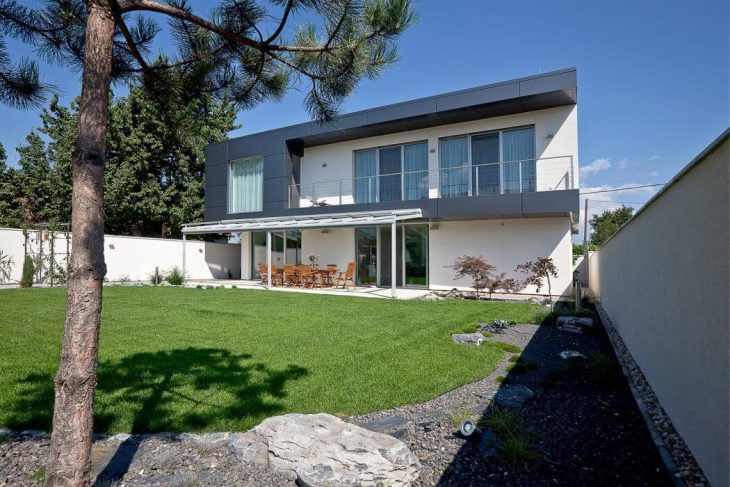
Improving your home’s energy efficiency is more than an act of reducing human demands on the environment. If you take the right steps to improve your home’s energy efficiency, you will save money on heating and cooling costs, electricity and even water. And you don’t have to install expensive solar panels likely to go obsolete before they pay you back on your investment. Here are ten easy ways to make your home more energy efficient.
Install a Radiant Barrier
Radiant barriers are a type of reflective insulation. They prevent heat transfer, so when the black asphalt roof gets hot, the heat is not able to pass the radiant barrier and heat up the attic. Radiant barriers are usually installed in attics to reduce heat gain in the summer that adds to your cooling costs. Radiant barriers reduce cooling costs in the summer by five to ten percent, though they will not eliminate the need for more thermal insulation to reduce your winter heating costs.
Read more after the jump: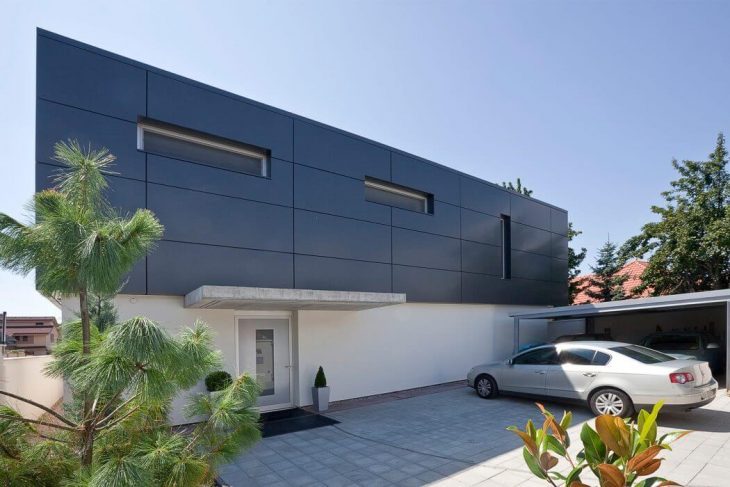
Radiant barrier installation costs depend on the type of material used, such as whether it includes air infiltration barrier material or additional thermal insulation. Installation costs for radiant barriers depend on the amount being installed and the complexity of the task. When installing a foil type radiant barrier, the material must droop at least an inch below the bottom of the roof, whereas foil faced plywood or strand board is more easily and cheaply installed.
Maintain Your Furnace
Maintaining your furnace, especially an older one, will improve its efficiency. Replacing air filters improves air flow and reduces wear and tear on blower motors. Cleaning sensors saves the unit from wasting energy and fuel trying to start up several times. Inspections of the furnace can find leaks in the fittings that pose a safety hazard to your family if you have a gas furnace. Cleaning air intake ports reduces the strain on the unit bringing in air, while cleaning the condensate drain and clearing the hose will prevent it from getting blocked, affecting efficiency or even shutting it down.
Maintain Your Air Conditioner
Instead of the stereotypical advice telling people to turn down the air conditioner in the summer to improve energy efficiency and save money, we’re going to address the benefit of maintaining the air conditioner. Cleaning the coils improves their efficiency and lets you spot refrigerant leaks before the unit runs itself long and hard to the point of mechanical failure when refrigerant runs out. If you catch a refrigerant leak early, you’ll also prevent the leak from letting as much refrigerant into the atmosphere to begin with. Modern refrigerants are not as bad for the environment as CFCs were for the ozone layer but they aren’t good, either.
Replacing your AC air filters improves air flow to the unit and saves it from working twice as hard to move half as much cooled air. Making sure there aren’t tools or leaves piled around the air intake, limiting its air flow, also improves its efficiency.
If you are considering planting a tree to naturally cool your home, consider planting it so the AC is in the shade. The efficiency of the unit depends on the thermal differential between the air brought in and the air brought out. If the air brought in is cooler, the AC doesn’t have to work as hard to cool it. Conversely, putting up barriers to airflow can trap the hot exhaust around the unit and cause it to work twice as hard to cool down your home. In worst case scenarios, the unit shuts down at the hottest part of the day because the air in is so hot it thinks there is a safety hazard. Don’t ignore the value of turning on a ceiling fan before you decide to turn down the thermostat.
An Energy Audit
Energy audits involve an inspection of your home to determine how energy is being used. Many energy audits start with taking a thermal camera around your home to identify the locations where heat is seeping through the walls. Maybe you’ll save a few percent on your electric bill by putting blinds up on that old half-moon window above the door or installing solar film on the windows to let in natural light but not heat. An energy audit may identify leaks in the walls where insulation has settled or cracks in the wall are letting air conditioned air out. This is aside from the standard advice of putting breeze blockers under your doors, though you may find that replacing your current entry door with one that is both insulated and more secure is worth the money.
Energy audits may or may not involve an inspection of your ducts, but if the AC or furnace is already ultra-efficient but the house isn’t the same temperature throughout, finding that collapsed or kinked duct could eliminate the need to run the AC all day so the children’s room is comfortable. If you want to save energy, closing off rooms from the HVAC system will reduce energy costs.
Programmable Thermostats
Programmable thermostats offer an excellent return on investment. Program the thermostat to start heating up your home or cooling it down in the summer an hour or two before you get home. Now, instead of running the HVAC system all day, it runs for a fraction of the time without impacting your comfort level. Programmable thermostats are advanced enough to maintain separate schedules for weekdays versus weekends.
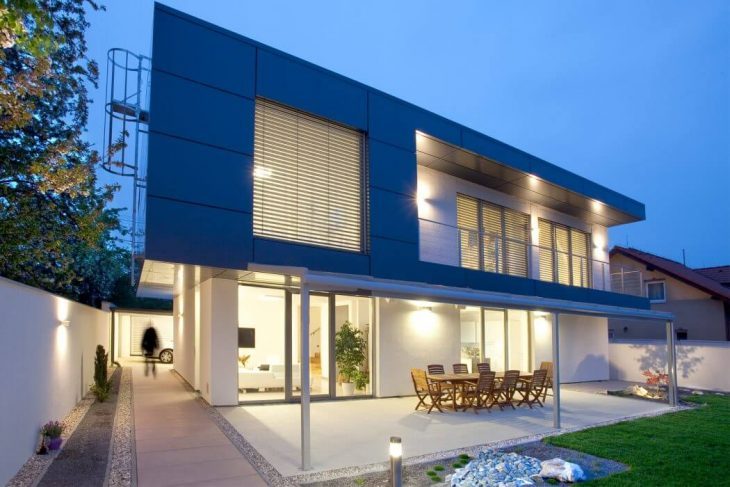
Use Your Appliances Right
We’re not going to tell you to spend thousands on new appliances to save several hundred a year in energy and water costs. If the appliance is more than ten years old, then the energy savings plus the expected reduction in repair costs does make that a value added proposition. However, you can save energy now by using your appliances the right way.
For example, most dishwashers use the same amount of energy and water whether you run a half load or full load. The solution is to only run the unit when full. Instead of running it on a heavy duty cycle to get that caked on grease or food debris, wipe down the dishes with a paper towel or rinse them off in the sink before loading.
Washing machines typically sense the level of the clothes inside of them, though they may fill all the way to the top if the unit is programmed to do so regardless of how many clothes you have in it. The units use similar amounts of electricity, though, cleaning a full load versus a half load. The solution is to only run the unit when fully loaded. Don’t forget to turn off the “second rinse” option unless the clothes are so filthy that this is actually a saving over running the same clothes through the whole cycle twice. Use cool water to wash clothes unless it must actually be hot water.
One small detail that is often overlooked is the impact of appliance positioning on energy efficiency. The efficiency of your refrigerator depends on the temperature of the air around the coils. You can improve the efficiency of the refrigerator by making sure the coils have at least six inches of air flow around all sides of the unit. And you can achieve even more by not having the refrigerator next to the hot stove or oven.
Where practical, air dry your dishes and clothing instead of using the heated dry cycle.
Cooking
Use your microwave before you use your oven to heat up small portions. Don’t heat up the oven and forget about it. Don’t open the oven door to check on the food unless absolutely necessary. If that is your only option, then it is worthwhile to fix the oven door or buy a food thermometer you can read through the oven door. Know what temperature the food needs to be cooked at and for how long. For the sake of safety, don’t try to save time by putting food in while the oven is heating up, since microorganisms are killed by being kept at those higher temperatures for a long period of time. The better choice is arranging your meal prep so you can cook multiple dishes at once in the oven instead of running the oven twice as long to cook multiple courses.
Your Hot Water Heater
One way to save on your energy costs is to turn down the setting on the hot water heater. Another option is wrapping the hot water heater in insulation so that it doesn’t lose as much heat to the surrounding area.
Unplug
Many electronics actually use about as much power in stand-by mode as they do when fully active. Unplugging your devices saves this energy. The problem is even worse for chargers, since they draw significant energy when plugged in even if nothing is connected to them to be charged.
Lights Out
Your lights account for five to ten percent of your home’s energy budget. The simplest step is to turn off lights when you aren’t in the room. Motion sensors that turn on lights when you enter the room could reduce the inconvenience as could installing LED night lights that cost only a few pennies per year to run versus turning on the overhead lights. If you are watching TV or using the computer, consider turning off the lights to save on power.
If you want to save on your energy bills, keep these tips in mind.
Images from Villa B by Architekti Mikulaj & Mikulajova


